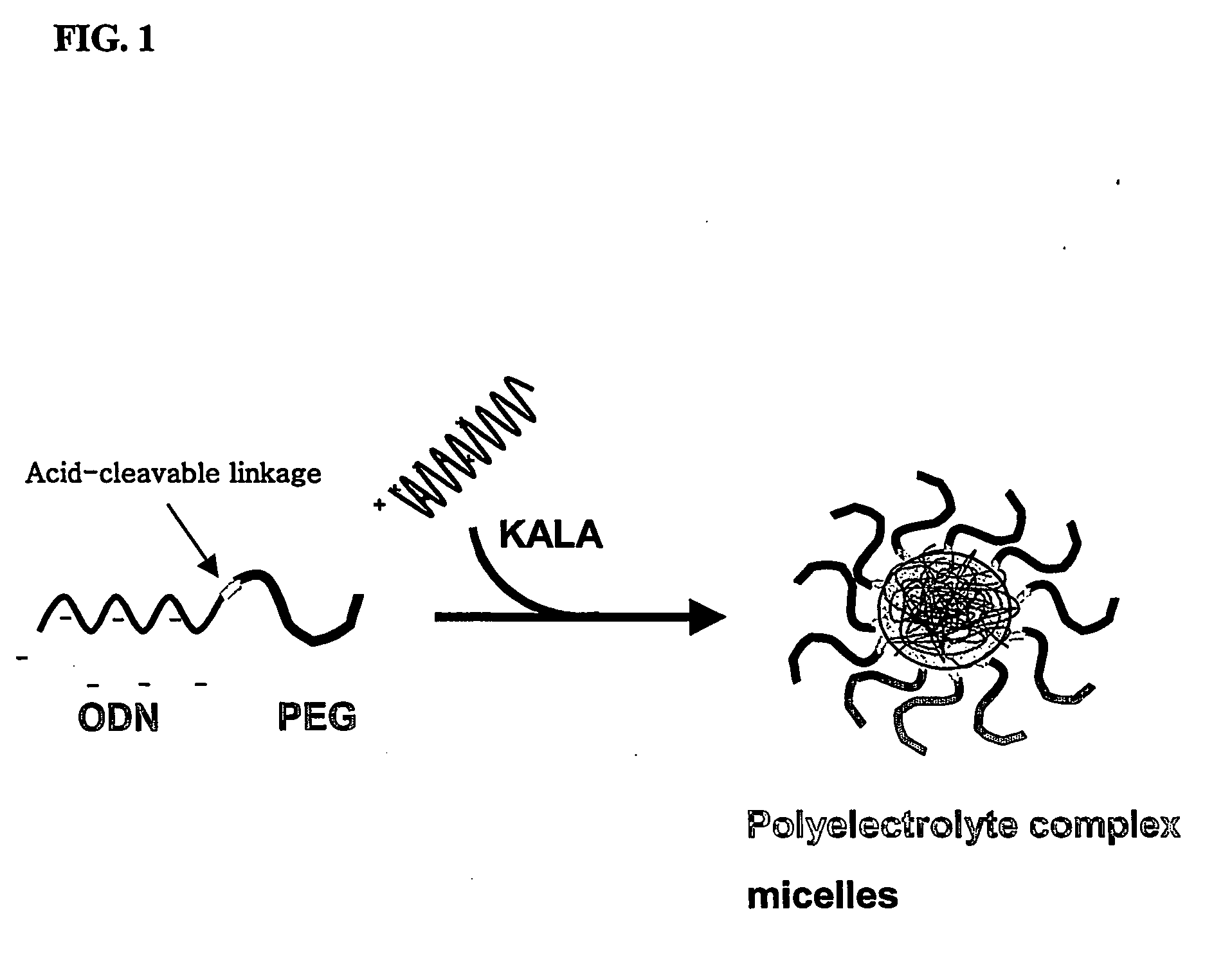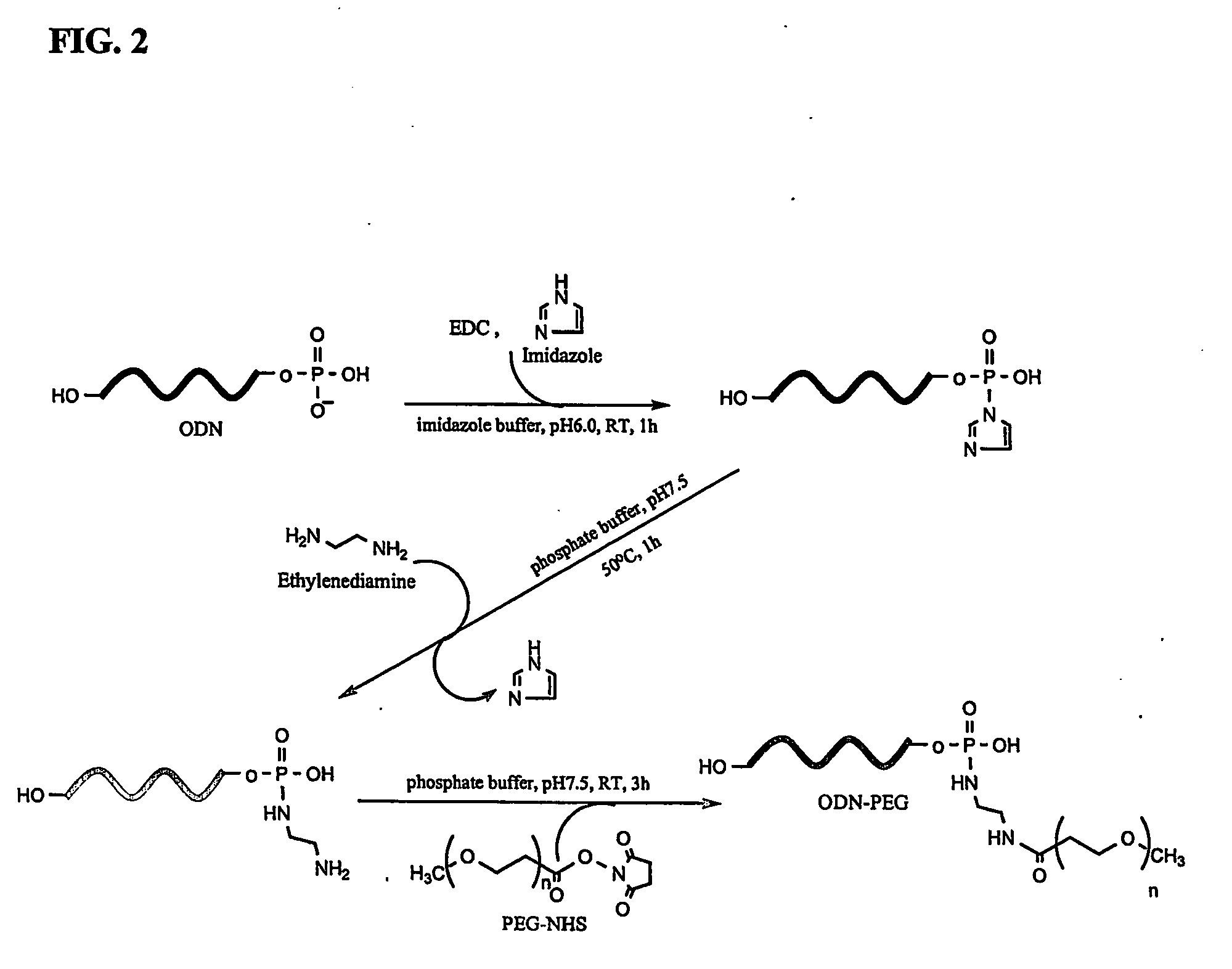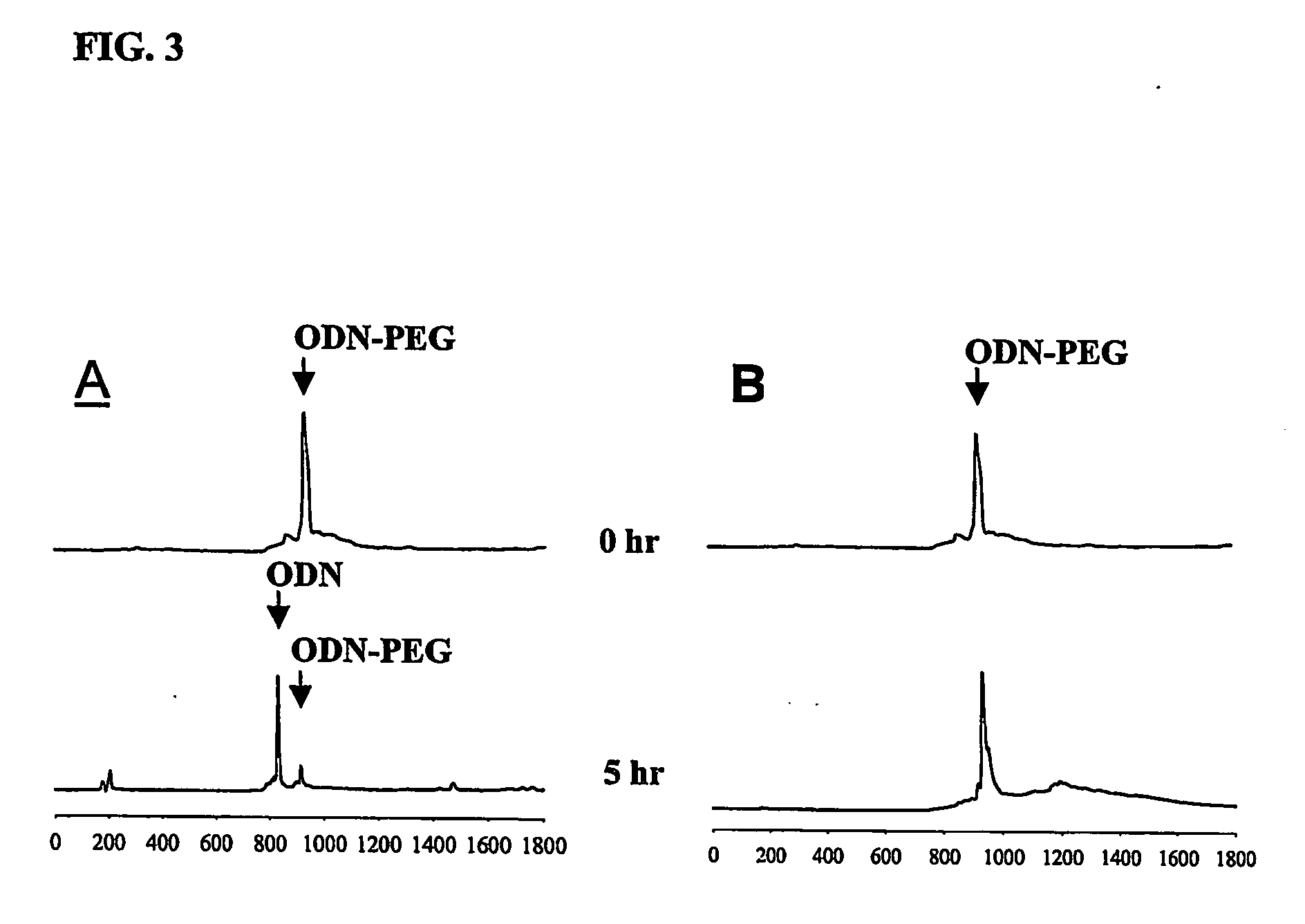Conjugate for gene transfer comprising oligonucleotide and hydrophilic polymer, polyelectrolyte complex micelles formed from the conjugate, and methods for preparation thereof
- Summary
- Abstract
- Description
- Claims
- Application Information
AI Technical Summary
Benefits of technology
Problems solved by technology
Method used
Image
Examples
example 1
Synthesis of Oligonucleotide-PEG Conjugate Having Acid-Cleavable Linkage (see FIG. 2)
[0032] In this test, a c-myb antisense oligonucleotide was used. After introducing a phosphate group to its 5′ end, the antisense oligonucleotide was activated by 1-ethyl-3,3-dimethylaminopropyl carbodiimide (EDAC) and imidazole to generate an oligonucleotide-phosphoimidazole intermediate, as follows. First, to form an active ODN-phosphoimidazolide intermediate, ODN (1 mg, 180 nmol) and EDC (3.5 mg, 18 μmol) was dissolved in 0.5 ml of 0.1 M imidazole (pH 6.0). The reaction mixture was incubated for 1 h at room temperature. The ODN having an imidazolide group at its 5′ position was isolated from the mixture by Sephadex G-50 spin-column chromatography, and collected in 100 μl of 10 mM phosphate buffer containing 100 mM NaCl and 1 mM EDTA, pH 7.5. One hundred microliter of 0.5 M ethylenediamine (pH 7.7) was added to the solution containing 5′-imidazolide ODN. The reaction was carried out for 1 h at 50...
example 2
Synthesis of Oligonucleotide-PEG Conjugate Having Non-Cleavable Linkage
[0034] To conjugate an oligonucleotide with polyethylene glycol (PEG) by non-cleavable linkage, an oligonucleotide having an amine group (—NH2) at its 5′ end was employed. First, after dissolving 1 mg (179 nmol) of the oligonucleotide having amine group (—NH2) at its 5′ end in 400 μl of 5 mM phosphate buffer (pH 7.4), this oligonucleotide solution was slowly added to 100 μl of a solution of methoxy-PEG activated by N-hydroxylsuccinimide (methoxy-PEG-NHS, MW 2000, dissolved in 5 mM phosphate buffer (pH 7.4)), followed by incubation with agitation for 3 hr, resulting in production of an oligonucleotide-PEG conjugate, where the two components were conjugated by formation of a non-cleavable carbamate bond. The unreacted PEG was removed by dialysis against deionized water (MWCO 5000).
example 3
Formation of Oligonucleotide-PEG / KALA Polyelectrolyte Complex Micelle and its Characterization
[0035] To obtain a gene transfer vehicle capable of transferring the oligonucleotide-PEG conjugate synthesized and isolated in Example 1 to target cells, polyelectrolyte complex micelles were prepared using a cationic peptide, such as KALA or protamine, or a cationic polymer, such as polyethylenimine. Herein, formation of polyelectrolyte complex micelles using KALA is suggested as an example with detailed description, as follows. First, the oligonucleotide-PEG conjugate was diluted in an equal volume of PBS, and KALA dissolved in PBS was then added to the diluted conjugate to form polyelectrolyte complex micelles, followed by incubation at room temperature for 30 min to stabilize the formed micelles, wherein the ratio of positive charge of the KALA peptide to negative charge of the oligonucleotide was 1:1 (+ / −=1 / 1).
[0036] The resulting oligonucleotide-PEG / KALA polyelectrolyte complex mice...
PUM
| Property | Measurement | Unit |
|---|---|---|
| Mass | aaaaa | aaaaa |
| Mass | aaaaa | aaaaa |
| Molecular weight | aaaaa | aaaaa |
Abstract
Description
Claims
Application Information
 Login to View More
Login to View More - R&D
- Intellectual Property
- Life Sciences
- Materials
- Tech Scout
- Unparalleled Data Quality
- Higher Quality Content
- 60% Fewer Hallucinations
Browse by: Latest US Patents, China's latest patents, Technical Efficacy Thesaurus, Application Domain, Technology Topic, Popular Technical Reports.
© 2025 PatSnap. All rights reserved.Legal|Privacy policy|Modern Slavery Act Transparency Statement|Sitemap|About US| Contact US: help@patsnap.com



